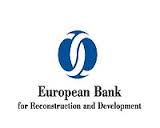After close to 200 countries signed up to a historic Climate Agreement in Paris at the end of 2015, the focus this year is firmly on the follow-up meeting in Marrakesh, Morocco in November, the 22nd Conference of the Parties, or COP22.
Last year’s Paris Agreement was a statement of collective determination to make real progress in what had been an elusive search for global consensus in battling climate change. In Paris parties agreed to limit global warming to less than 2 degrees Celsius.
This remains a challenging task, as it means that industrialised countries will need to reduce greenhouse gas emissions by 80 per cent by mid-century and become carbon-neutral thereafter. And climate change will continue, so adaptation will grow as well.
Both climate change mitigation and adaptation will need climate finance investments. If 2015 was about the principle that – finally – something had to be done, 2016 is about how to achieve this new set of ambitious environmental goals and make them a concrete reality.
“COP22 is currently referenced as the ‘implementation’ COP,” explained Jan-Willem van de Ven, Associate Director and Head of Carbon Market Development at the EBRD’s Energy Efficiency and Climate Change department, who is coordinating the Bank’s work at the meeting.
This year’s Marrakesh session, from 7-18 November, won’t be just for diplomats and political leaders. Morocco will host a simultaneous meeting for engineers, researchers, scientists, and policy-makers to devise actionable pathways for meeting the goals of the treaty.
2016 has already been dubbed the “Year of Green Finance”, with a spotlight on how to deliver the trillions of dollars’ worth of investments needed to make a decisive difference on global warming.
Now when the 2015 Paris Agreement ratification threshold has been reached, the priorities this November will be strengthening the steps to deal with both climate change itself and its effects, so-called climate change mitigation and adaptation.
A key focus for negotiators will be to further develop the regulations and decisions to implement the Paris Agreement. As an example, in Paris it was agreed to schedule every five years a global stock-take that would help countries determine how to increase and accelerate their emission reduction targets.
The rules and procedures on monitoring these processes are yet to be agreed. Due to the complexity of issues and number of parties involved these will remain slow negotiations, but the process is moving forward.
Ways will be sought to support individual countries in translating into action their climate pledges as per their National Determined Contributions (NDCs) through capacity building, technology transfer and climate finance.
The responses will be strengthened by developing collaborative initiatives and there will be sessions on how to mobilise the finance, technology and skills to deliver the climate goals.
The EBRD – through its new Green Economy Transition (GET) approach, an initiative that places even more emphasis on climate finance – stands ready to support the countries where it works in the implementation of the Paris Agreement.
By 2020, the EBRD aims to be dedicating 40 per cent of its annual investments to green economy projects, doubling the pace of financing in this sector compared with the last five years.
As in 2015, the EBRD will play an active role in the COP22 conference and it is organising a number of events itself as well as participating in other meetings. The planned EBRD-led activities will focus on capacity building in relation to the NDCs, energy efficiency, carbon market policies, adaptation and technology transfer.
As this COP is in Morocco, an EBRD country of operations, the Bank will profile its work in the country and the region.
As part of the climate finance day organised around COP22, the Bank will showcase the MoroccoSustainable Energy Financing Facility. Through SEFFs, the EBRD indirectly lends to local banks for on-lending for energy efficiency and small-scale renewable energy projects. Morocco’s MorSEFF has been extended to two commercial banks in Morocco, BMCE and BCP.
Source: ebrd.com

